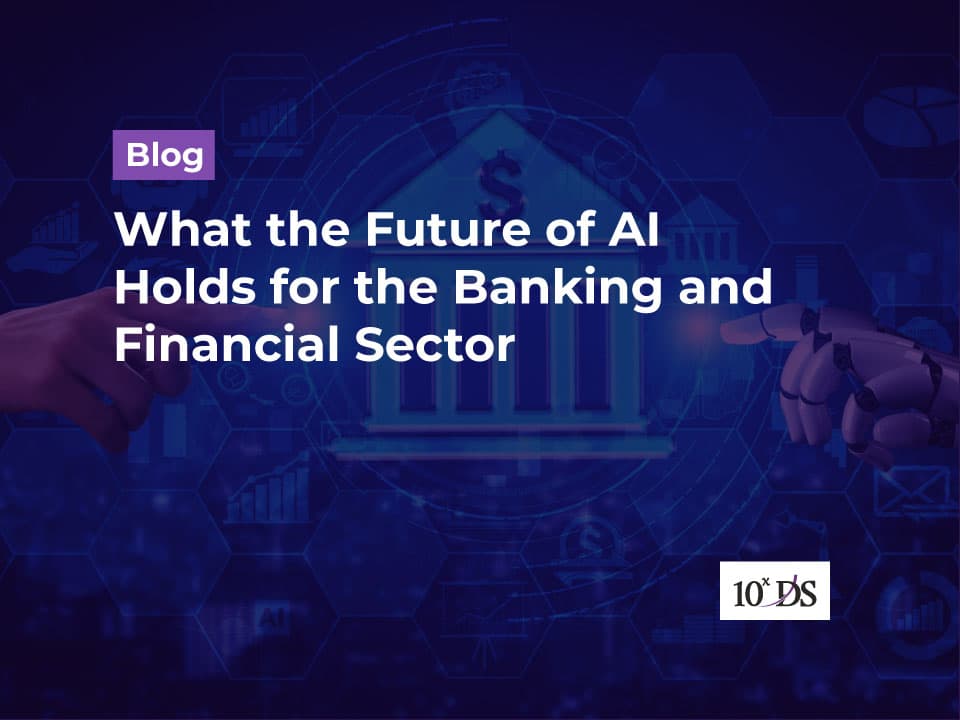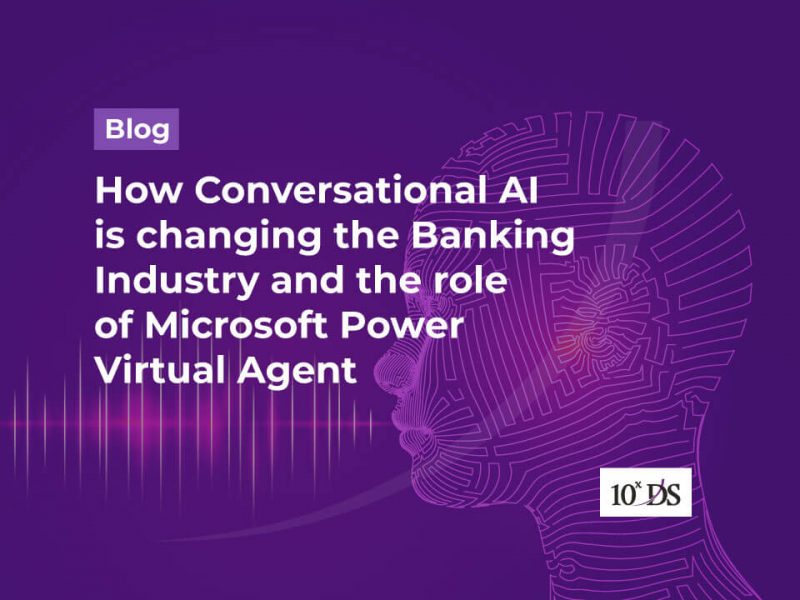
What the Future of AI Holds for the Banking and Financial Sector
In the context of the financial sector, what is the first thing that comes to mind when you hear the term “artificial intelligence?” Do you not think that software robots could aid you in your routine activities? What we mean by “artificial intelligence” (AI) is the simulation of human intelligence by machines, primarily computers. The term “artificial intelligence” can also refer to “machine intelligence” (AI).
Because so much of the world’s wealth is stored in digital form in databases and transactions that essentially just move data across networks, the banking industry is one of the most rapid adopters of technological advancements. It’s possible that areas as diverse as accounting, sales, contracts, and even cybersecurity could all stand to benefit from the advent of cutting-edge technologies like artificial intelligence (AI).
As part of their digital transformation, banks are bolstering their AI by teaming up with FinTech firms to provide superior banking solutions to their customers. Using state-of-the-art technologies, the banking sector has made revolutionary progress in recent years. So that they can offer things like mobile banking, e-banking, and instantaneous money transfers, they are also diversifying their industrial base to include retail, IT, and telecom.
Banks can benefit from digitalization and compete with nimble Fintech firms by employing this AI-powered cognitive technology. National Business Research Institute and Narrative conducted the study. About a third of the sector’s financial service providers are already making use of artificial intelligence services like voice recognition and predictive analytics, according to Science.
Reasons such as increased competition in the banking sector, a push for process-driven services, consumer demands for more customised solutions, increased employee productivity, a vision to expand hub man work through the use of software robotics, creating operational efficiencies, making effective decisions and actions, and much more are driving the rise of artificial intelligence in banking.
What are the Benefits of Using AI in Financial Services?
What defines this generation is technology. Solutions to the myriad issues facing today’s youth are in high demand. They want instant gratification by having the answers at their fingertips. It’s possible that a machine or a human relations manager is on the other end of the screen, responding to inquiries.
Since the advent of big data, businesses have become obsessed with mining unstructured data for insights. Applications of big data are already revolutionising artificial intelligence in the Fintech industry. AI is no longer science fiction. Banking and finance companies are jumping in to use this data to better serve their customers by doing more than just reaping the benefits of artificial intelligence (AI) in data extraction and organisation.
AI makes use of a process called machine learning in order to simulate human thought processes. With the help of AI, machines can perform functions that would normally require human cognition. Artificial Intelligence (AI) developments like robots use algorithms and historical data to construct a propensity model. An assortment of ideas, methods, and tools all contribute to AI’s influence in banking applications.
- One benefit of machine learning is that it makes it easier to develop analytical models. Machine learning, physics, statistics, and operations research are all employed to discover hidden patterns in data without the need for arbitrary starting and stopping points.
- A neural network is a relatively new method of machine learning that consists of interconnected nodes that perform data processing in response to external inputs and share information with one another. It takes multiple passes through the data for this method to be effective at revealing connections and making sense of murky evidence.
- “Deep learning” makes use of huge neural networks, processing units, leaps in computing power, and tried-and-true training methods to help uncover fine-grained patterns in massive data sets.
- Cognitive computing is an artificial intelligence subfield that aspires to enable human-like conversation with robots. Artificial intelligence (AI) and cognitive computing aim to develop computer systems that can analyse visual data, decode spoken language, and mimic human behaviour.
- Natural language processing (NLP)-NLP is the ability of a computer to read, understand, and generate human language such as speech. Using natural language interaction, humans and robots can have conversations.
The Positive Effects of Artificial Intelligence on the Banking Industry
Fulfillment of expectations: The banking industry, like all others, relies heavily on happy customers. Each client has the right to expect individualised attention from the bank, but how can this be achieved? The bank is able to increase its revenue, make better decisions, and keep better relationships with its customers thanks to artificial intelligence.
Have you ever used a chatbot to talk to a bank representative? This AI makes use of Natural Language Processing to respond accurately to a wide variety of customer questions. In their most basic form, chatbots are simply conversational software that can run autonomously or adhere to a set script. These days, customers of financial institutions can get help at any time of day or night thanks to chatbots.
Due to the irrecoverable nature of financial losses, fraud detection in the banking sector is a hot topic. However, AI can help the banking sector significantly reduce the likelihood of such actions.
How Will AI Change the Future of Banking?
Almost every sector is being altered or disrupted by digital technology, which is also influencing how businesses are run. Every sector is currently assessing its options and developing plans to thrive in today’s increasingly technological environment.
The number of people using banking services is increasing steadily because of the widespread adoption of digital technologies seen in modern societies. How can banks better assist growing numbers of customers without adding to their payroll costs?
Industry faces difficulties in meeting the varied needs of consumers. These days, clients have incredibly lofty anticipations. Customers today are digitally savvy, and they expect all industries, including the banking industry, to provide them with a positive and stress-free experience.
The banking industry has branched out into other industries, such as retail and information technology and telecommunications, in order to better meet the needs of their customers. These high-tech additions benefit customers by putting banking at their fingertips, but they come at a price for financial institutions.
The integration of information technology, telecommunications, and retail has raised the stakes in terms of the potential for the transfer of sensitive data over digital networks. Occasionally it leads to cyberattacks and financial fraud. The damage done to the public’s faith in the bank by this kind of fraud extends far beyond the monetary losses.
The primary function of AI in the financial sector is to aid customers by giving their preferences greater weight. AI is also useful in making sure customers are happy with the bank’s products and services. Artificial intelligence (AI) or machine intelligence aids the financial institution in gauging customer expectations.
Banks’ AI Struggles
- Many financial institutions are unsure how to upgrade or incorporate new techniques. This is a problem in some secondary and tertiary cities across the country due to the standardisation and inflexibility of traditional methods. These businesses also have no interest in investing in their employees’ professional development or expanding their human capital.
- Institutionalized banks’ compliance with government regulations is contingent on their use of artificial intelligence. The bank must comply with privacy regulations because of the growing popularity of online banking and other similar services. Three, the current workforce is woefully unprepared to use cutting-edge technologies and artificial intelligence in the financial sector. Increased demand for AI has resulted in a surge of skilled labourers in the field. Professionals with backgrounds in fields such as data science and machine learning are required to lend authority to the available information.
Impact of AI on the Financial Sector
In the banking sector, AI has been put to use in the following ways:
- Individualised financial advice based on the most recent market data available: this is one way in which AI is revolutionising the financial services industry. That leads us to believe that AI can provide customers with tailored financial advice.
- The advent of digital wallets has catapulted the digital currency revolution to new heights. The most notable feature of digital wallets is that customers can make online purchases with only their cellphone number or a one-time password (OTP).
- An IVRS (Interactive Voice Response System) is used to contact customers (IVRS). The primary goal of this application is to provide an excellent banking experience by properly answering customers’ questions.
Conclusion
Banking and the financial sector have reached a turning point. The post COVID-19 pandemic scenario has hastened the acceleration of long-term trends toward a new S-curve for banking business models brought about by technological disruption and consumer shifts. A new business model, which we dub “the AI bank of the future,” can help banks capitalise on the growing popularity of AI applications in the financial sector and increase revenue while decreasing expenses through novel customer engagement and service.
If you’re interested in learning how to increase the value you offer to your staff and customers through the implementation of AI solutions, talk to our experts!


